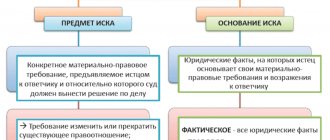Share with family and friends:
Anyone who has ever thought: “How can I expel a person from a house without his consent if I am the owner?” is looking for regulations on this issue and trying to understand exactly what rights the people registered in his living space have. Much here depends on the age of the residents, the reasons why people were registered in the house, and why they now need to be discharged.
How to check out of housing
A citizen of the Russian Federation can change the registration address at his own request and forcibly. You can voluntarily check out of your apartment as follows:
- Collect the necessary documents.
- Contact the Migration Department of the Ministry of Internal Affairs or the State Budgetary Institution “My Documents” (formerly MFC).
- Fill out the application form No. 6.
- Provide written consent from the owner of the new home if the extract and registration coincide in time.
- Submit the package of documents for processing.
- Visit the migration office and get your passport stamped.
Find out in more detail why there is a need to quickly change your registration and how to check out of your living space.
Forced deregistration can be carried out at the initiative of the owner on the basis of Article 30, which assigns to him the right of ownership and provision/non-provision of housing belonging to him for use.
Only family members of the owner have the unconditional right to use the apartment.
In other cases, the law determines what is needed to expel a stranger from an apartment that does not belong to him and the owner of which he is not closely related to.
What happens if there is no registration
If a citizen has left the sold property, then the law allows him not to register for a period of 3 months. But if after this time the citizen does not register, he will face unpleasant consequences. The law does not restrict the civil rights of persons without registration. However, in the absence of registration, a person cannot:
- get officially employed;
- obtain a medical policy to receive free medical care;
- receive SNILS and pension benefits;
- issue or change documents such as a passport or military ID;
- register as unemployed and receive benefits;
- register the child for school, kindergarten and other educational institution;
- apply for required social benefits.
If registration is missing for more than the required time, a fine is imposed, the amount of which depends on the region of residence. In St. Petersburg and Moscow the penalty is 3-5 thousand rubles, in other regions - 2-3 thousand rubles.
If the fine is not paid within 30 days, the amount of the penalty is doubled. If the violator continues to ignore the penalty, he may be arrested for 2 weeks or assigned to mandatory labor. But you still have to pay the fine.
Eviction of a person without his presence
Discharge of a person from the apartment in his absence is possible with his own written consent, sent by mail, and on the basis of an application from an authorized person with a notarized power of attorney.
A separate basis for discharging a person without his personal presence is a court decision made based on the results of consideration of the claim.
Evidence will be required if you need to evict a person in his absence due to:
- loss of the landlord's right to use housing at his own discretion;
- serving a sentence for a criminal offense;
- declaring him missing. There is a special algorithm for how to recognize a person as such, and then how to discharge a missing person;
- death confirmed by a certificate from the competent authorities or other similar document;
- conscription for compulsory military service in the ranks of the RF Armed Forces. Confirmation is provided by a notification to the territorial commissariat;
- antisocial behavior of those living in the apartment building;
- systematic violations of community standards and others.
Find out in what cases a power of attorney is needed to check out of an apartment.
Voluntary and forced discharge
Russian legislation strictly regulates all procedures for registration and check-out at a residence address. To quickly discharge a person, you need to strictly follow the prescribed procedure and collect all the necessary documents.
Many questions arise when there is a need to check out a tenant or check out of an apartment or house. Usually, the one who is discharged personally goes to the passport office or other representative of the registration authorities. There he writes an application and provides documents. And then, based on this documentation, an extract is already issued.
But such deregistration is not always possible. Sometimes the person being discharged simply cannot make it to the passport office (physically or due to other circumstances). Sometimes residents do not want to check out and leave the house. And how to discharge the registered person from the apartment in these cases? Who can check out a tenant from an apartment? Then only the owner of the property can deal with deregistration of the person registered with him at home.
Help! There are two types of registration: permanent - registration at the place of residence - and temporary - at the place of residence. With permanent registration, the tenant can use the living space unlimitedly, without any time restrictions. Temporary registration limits the length of a person’s stay. And when this period ends, registration automatically ends.
Discharge of relatives without consent
The problem becomes the refusal of the living relative to deregister and leave the living space.
The owner has the right to expel persons registered in the apartment with whom he is related and who do not do this voluntarily, but he will not be able to do this without a court decision.
Is it possible to discharge parents?
Although, by law, the homeowner can dispose of the premises at his own discretion, he may face serious problems if he wants to remove the mother or father from his living space. This will happen if the parents do not have other housing and even live in a rented apartment.
In this case, when filing a statement of claim with a demand to remove the registration at the place of residence of the parents of the owner of the residential premises, the court may reject the claim or refuse to satisfy the plaintiff’s claims due to the lack of alternative living space for the elderly parents and the impossibility of acquiring it.
In other circumstances, a decision may be made in favor of the plaintiff. Then deregistration is carried out on the basis of this decision.
How to deregister grandparents, sisters and brothers
Close relatives, but not family members, for example, brothers and sisters, grandparents, can be discharged from the home of their relative-owner on a general basis.
You can cancel the registration and remove your registration from any of them by filing a claim in court.
During the consideration of the case, there will be no pitfalls and surprises if these relatives do not have a share in the property, which would significantly complicate the procedure.
In the first case, the owner can state any reasons for deregistration: non-residence in the premises, refusal to pay utilities, and so on. These claims must be supported by documentation or testimony.
Features of the discharge of former spouses
Divorce is one of the serious reasons to write a former family member out of your square footage. After receiving a certificate of termination of marriage, the owner has the full right to cancel the registration of the ex-spouse.
On the one hand, the procedure is simple - the owner submits a document confirming the fact of divorce to the FMS and discharges the ex-spouse from the apartment.
The following circumstances may complicate the process:
- the property was acquired during marriage. In this case, you first need to identify the owner of the apartment and only after that remove the spouse from registration;
- lack of other housing for the spouse. A way out of the situation may be to provide him with housing, otherwise it will be problematic to discharge the ex-spouse;
- carrying out redevelopment or major repairs. First, it is necessary to resolve the issue of ownership of such real estate in court.
Find out what documents may be required and how to expel your ex-husband from the apartment.
How to register your own children and your spouse's children
If the owner decides to expel his own children from the apartment, who have not reached the age of majority and live with the second parent after the divorce, this will be difficult to do.
Since, according to the law, the termination of a marriage between parents is not grounds for termination of the rights of minor children, it is possible to deregister a child who is under 18 years of age only in one case. The owner must provide his son/daughter with other housing that meets the established requirements and does not worsen their living conditions.
It is easier to cancel the registration of a minor child of the other spouse, since he has another parent in whose living space he can be registered. He does not have the right to the property of his mother/father’s spouse.
How to cancel the registration of spouses of children (daughters-in-law)
The easiest way is to deregister the daughter-in-law registered in the apartment - the wife of a son or brother. Divorce of marriage by law terminates family ties between husband and wife (Article 31 of the RF Housing Code). Thus, the daughter-in-law becomes a stranger to the parents and brother of her ex-husband.
The owner can write it out and terminate the previous right to use the residential premises by filing a claim in court on the basis of Art. 288, which regulates the owner’s right to dispose of property.
The grounds for discharge may be:
- daughter-in-law living in another place;
- non-payment of utilities;
- termination of family ties.
The same procedure is provided for the removal of a former son-in-law from the apartment.
Discharge of an incapacitated relative
Discharging an incapacitated person with whom the owner of the living space is related is not an easy task. It can only be resolved in court. And even going to court is not a guarantee of a positive decision on his forced discharge.
Moreover, even with the consent of the incapacitated person, the court does not always make a decision allowing the owner to do this.
The court may make a decision to discharge an incompetent citizen in cases clearly defined by law:
- his use of housing for other purposes (ground – violation of the provisions of Articles 678 and 288 of the Civil Code of the Russian Federation);
- residence of an incapacitated person in another place for more than 1 year;
- their failure to pay utility bills (Article 155 of the Housing Code of the Russian Federation), which is fraught with eviction from the residential premises after six months;
- damage to residential premises that poses a danger to third parties;
- redevelopment of residential premises that is not legally approved and not agreed upon with the relevant authorities.
The procedure for deregistration without consent through the court
In order to remove a non-owner from an apartment who does not want to do this voluntarily, you must have a resolution to remove the citizen from registration. The owner can receive such a document:
- by applying to the magistrate’s court at the location of the subject of the dispute (apartment) or residence of the plaintiff (applicant);
- by drawing up a statement (claim) indicating the reasons that, in the plaintiff’s opinion, are grounds for deregistration of a particular person;
- by attaching a receipt for payment of legal costs;
- providing documents for discharge.
The plaintiff must provide evidence of actions aimed at notifying the tenant of the intention to go to court on the issue of his forced discharge:
- receipts for payment of registered mail with a list of attachments;
- written statements of witnesses to the delivery of documents and others.
Find out more about how to discharge a person from an apartment through the court.
✅ Cost
The difference between voluntary and forced discharge is not limited to the procedure. It’s also worth mentioning the cost.
Filing a claim in court will cost at least 300 rubles (Article 333.19 of the Tax Code of the Russian Federation). Costs may be associated with the collection of certain types of certificates.
A regular extract is not subject to state duty. It is believed that termination of registration is a voluntary expression of the will of the resident. Costs are usually associated with third parties. For example, if this is an extract from a registered relative by proxy, you will have to pay for notarization of the documents.
Rights of registered relatives who are not owners
Registration of a person related to the owner of the living space in an apartment gives him certain rights. Family members of the owner and his close relatives are:
- children,
- spouse,
- parents.
They have the right to use the housing, like its owner, unless otherwise provided by the agreements in force between them, and can also check out of the apartment without the owner of the housing.
Other relatives are not recognized as family members, but can be considered as such if the owner of the living space has established this by allowing their registration.
If a residential premises has several owners (the property is in shared ownership), the written consent of each owner will be required to register a person in this premises.
The rights of a person who is not the owner of real estate, but is registered in it, are limited to the ability to use living space for the purpose of residence. Concluding transactions with property and registering their relatives at this address, excluding minor children, is impossible for them.
Find out what the rights of those registered in the apartment are.
Who are family members?
The owner of the premises has the authority to use, own and dispose of the property. This means that a citizen can register any person in his area, not excluding relatives. The legislation defines the circle of persons who are family members.
These are considered:
- Husband/wife if officially married. Parents and children. For this category of citizens, when recognizing them as family members, it is not necessary to establish the fact of joint housekeeping; it is enough that they live with the owner under the same roof.
- Persons who have family ties with the owner of the property, for example, nephews, or who have been moved in by the owner as a family member (common-law spouse, etc.). If controversial situations arise, the courts clarify the circumstances: whether the above-mentioned people were moved in as family members or whether the premises were provided for use. If we are talking about the first option, in addition to the fact of living under the same roof with the owner of the property, evidence is required indicating joint management of the household.
There are no problems with registering the above persons. But can the owner expel a person from the apartment if they are relatives?
The essence of testamentary refusal
Sometimes the owner becomes the owner of real estate on the basis of succession, having entered into the right of inheritance. Sometimes receiving such an inheritance may have a burden in the form of a testamentary refusal. Its essence is that the testator imposes on the heir the obligation to provide a third party with the opportunity to live in the inherited premises for a specific period or for life.
Such a citizen has the right to demand that the heir fulfill the will of the testator, therefore in most cases it is impossible to remove him from the registration register without consent.
The Housing Code defines the circumstances in which this is still possible:
- the inability of the registered person to maintain the normal condition of the home, leading to its destruction;
- use of living space for purposes other than residence;
- behavior that infringes on the legitimate interests of neighbors.
In such circumstances, the owner is obliged to warn the citizen about the inadmissibility of such actions, setting a time to correct the situation.
If positive changes do not follow, you can file a claim to evict the citizen from the apartment and to remove him from the register.
The owner, who has become such by way of succession to housing with a citizen registered in it by testamentary refusal, has the right to enter into transactions for its alienation. However, the new owner is obliged to carry out the will of the testator.
How to discharge a person from an apartment through the court
If a person does not want to be discharged on his own, then he needs to go to court. There will be a forced discharge from the owner's apartment. Let's look at how the owner can check a person out of the apartment. Prepare documents indicating the loss of the right to use the housing. What does it take to check a person out of an apartment?
Prepare a claim that meets all the requirements for statements of claim. Indicate the essence of the requirement, its grounds, legislative norms and a list of evidence. The statement of claim must indicate at least one of the owners.
After this, you need to follow the pre-trial procedure for resolving the dispute - give a copy of the claim and all the documents attached to it to the person being issued (the future defendant) with a request for relief permanent deregistration. Is it possible to discharge a person without his knowledge? Theoretically, no, because documents are served directly in person in front of witnesses or through a registered letter with notification. That is, he will know about the trial.
And only after this does the discharge procedure through the court take place. If the defendant does not come to court, then the process will still take place. And his case will be considered without his participation (in absentia).
The court, in the presence of the plaintiff, will consider all the grounds and evidence. In case of a positive response, a decision will be issued on forced deregistration. The defendant has a month after the court made a decision not in his favor. Only after a month can you apply to the registration authorities, since during this time there may be another court where the defendant can appeal the previously issued decision. Now, having In the hands of a court decision, you can contact the passport office (FMC) and issue an extract from the apartment without consent .
In the future, the procedure is carried out as standard, within three days. The procedure for discharging a person from an apartment/house in 2021 is a simple task. The procedure has not changed for several years and remains strictly regulated. You can be discharged without any problems yourself, and it is also enough to simply discharge your child (subject to certain conditions set by the guardianship authorities). Special problems will not arise if all the documents are available if you need to discharge a deceased person. But it is much more difficult to forcibly discharge an unwilling person. Such an extract is possible only through the court! And nothing else. But if there are all the grounds for the owner to be released from the apartment and evidence for the release, then this is within the power of any home owner.
conclusions
The owner of a dwelling has the unconditional right to write out a registered relative registered in the dwelling he owns. The legal grounds for this are clause 4 of Art. 31 LC RF and Art. 288 Civil Code of the Russian Federation. Deregistration is carried out both with the consent of those registered, and compulsorily through a judicial procedure. An important condition for discharge is the presence of compelling reasons, supported by documents.
The greatest difficulty is in extracting parents, minors and spouses who have a share in the property from the apartment. The simplest option is to cancel the registration of strangers, distant relatives, sisters and brothers, as well as daughter-in-law.
✅ Legal assistance
Terminating the right to use housing for a stranger is easier. But when the owner is faced with the discharge of a relative, doubts cannot be avoided. Family relationships and division of property often go against each other. Having registered a relative, sometimes it is very difficult to discharge him later. The situation may be complicated by the presence of relatives with children.
Entrust your legal problem to our lawyers.
By signing up for a free consultation, you will get answers to all your questions. Lawyers will advise on how best to discharge a registered relative. We are sure that going to court is a last resort. The help of a lawyer will allow you to resolve the problem at the pre-trial stage, which will save you time and nerves. Attention!
- Due to frequent changes in legislation, information sometimes becomes outdated faster than we can update it on the website.
- All cases are very individual and depend on many factors. Basic information does not guarantee a solution to your specific problems.
That's why FREE expert consultants work for you around the clock!
- via the form (below), or via online chat
- Call the hotline:
- 8(800)302-39-65
— All residents of the Russian Federation - +7(495)128-69-80
— Moscow and the Region - +7(812)509-13-65
— St. Petersburg and region
- FREE for a lawyer!
By submitting data you agree to the Consent to PD Processing, PD Processing Policy and User Agreement.
Anonymously
Information about you will not be disclosed
Fast
Fill out the form and a lawyer will contact you within 5 minutes
Tell your friends
Rate ( 3 ratings, average: 3.67 out of 5)
Author of the article
Maxim Privalov
Lawyer. 2 years of experience. I specialize in civil disputes in the field of housing and family law.
Author's rating
Articles written
614







